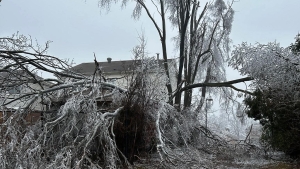The Daily Commercial News asked Ontario construction stakeholders to ruminate on the future of skilled trades recruitment and regulation in the wake of the recent announcement by Ontario’s Minister of Labour, Training and Skills Development (MLTSD) Monte McNaughton of the establishment of a five-member Skilled Trades Panel to advise him on the issue.
Stakeholders were asked: What lessons can we learn from the demise of the Ontario College of Trades (OCOT)? What system should replace it? What are the priorities as we aim to develop a robust construction workforce?
Sandro Perruzza, chair of the Construction and Design Alliance of Ontario (CDAO) and CEO of the Ontario Society of Professional Engineers
“The important lesson for any regulator is that if you lose focus on your primary objective of protecting the public, you run the risk of becoming irrelevant, and thus, considered just more red tape that inhibits business growth. Unfortunately, many regulators in other professions are struggling to become relevant to industry because they lose their focus and try to be too many things to too many different interest groups.
Whatever system you replace OCOT with, it should be limited in scope and capacity. The system should be a competency assessment and a quality assurance program. They should not be involved in ‘promoting the skilled trades,’ delivering training, participating in advocacy or labour relations activities. That should be left to the many other organizations that exist, like Skills Ontario and labour councils.
To ensure it remains relevant to society and to industry, it needs to have an equal number of public seats and industry seats on any governing or advisory board.
To remain relevant and responsive, the system needs to be adaptive and flexible to allow entrants multiple pathways to access the skilled trades. We need a good governance framework where labour, industry and public representation are all equally balanced.”
Ian Cunningham, president of the Council of Ontario Construction Associations
“The notion of a college for the skilled trades was very controversial particularly in construction with about half of the industry in favour and half opposed. A main point of contention was that the College had a large and cumbersome governance structure. The governance model was largely populated with union representatives and unionized contractor representatives. This was a bone of contention with the non-union side of the industry.
One of the highest priorities of the College was the enforcement of scopes of practice. This priority was popular with the compulsory trades who funded the College and who were unhappy with Labour Board decisions on work jurisdiction. This did not sit well with the non-union side.
More recently, the College became far less controversial with reforms that addressed many of the issues outlined above.
In light of the government’s recent striking of the expert panel, the future of the trades will be considered by our skilled trades and apprenticeship committee here at COCA.
COCA’s membership includes general and trade contractors, both unionized and non-union and companies of all sizes and from across the province.
Priorities should be improving apprenticeship completion rates and recruiting more sponsors to take on apprentices.”
Ian DeWaard, provincial director, Christian Labour Association of Canada (CLAC)
“OCOT failed for a number of reasons that should be considered in developing its replacement. At the outset, it did not instil confidence in the industry because it failed to make evidence-based decisions about ratios and scopes of practice. Its governance model was cumbersome and unrepresentative of the stakeholder community.
Also, in its early days, OCOT’s enforcement activities became overtly engaged in labour relations conflicts, problems that should have been beyond the mandate of a body entrusted with professionalization and standard setting for the trades.
CLAC has recommended that a new division be established within the MLTSD, with a clear and dedicated focus on the apprenticeship and skilled trades system.
CLAC opposes the reduction or compartmentalization of skills sets within the scopes of practice of the compulsory trades. A Certificate of Qualification and Red Seal Certificate are important credentials that should not be diminished in value. The preservation of this system need not interfere with the addition of and developing of new skill sets.
Stakeholders of all types (contractor, union, province) should focus more energy on not just attracting workers to the trades, but also better supporting workers who have elected to begin an apprenticeship.”
Graeme Aitken, executive director, Electrical Contractors Association of Ontario (ECAO)
“In partnership with our labour partners the IBEW CCO, the Ontario Electrical League and CLAC we presented suggestions to the MLTSD shortly after the move away from OCOT was determined. As an overall statement: We want to ensure that the reforms to the apprenticeship and trade system achieve their objectives while ensuring a continuation of the high levels of safety, quality and efficiency that characterize our industry.
It appears that, while formed with good intentions, the OCOT system bit off more than it could chew. There were too many sectors, compulsory and non-compulsory, enforcement, administration and policy. ECAO and our labour partners certainly learned that compulsory trades must be treated in a different fashion than non-compulsory.
While we appreciate the need for Ontario’s apprenticeship system to be flexible and responsive to the needs of the Ontario economy, we want to be sure that these goals are achieved without weakening the Red Seal; keeping existing scopes of practice for 309A; ensuring public and worker safety; and adhering to current strong competency standards for the electrical trade (upholding the value of a CoQ).
ECAO is concerned that issuing certificates for standalone electrical skill sets will undermine the Red Seal program.”
Mike Gallagher, business manager, International Union of Operating Engineers Local 793
“Most industry stakeholders knew OCOT was not going to be perfect right out of the gate. Unfortunately, the College decided to take on too much at one time and should have started with the compulsory trades and once that was under control, they could have moved onto reviewing the other apprenticeship programs that are voluntary.
The new model needs to make sure it is not controlled by outside sources and needs to listen to the trade members who know what is required for their trade.
Our mobile and tower crane compulsory trades must be kept as is for the Operating Engineers. We also have non-compulsory/voluntary trades that we want to become compulsory and there must be a process in place that allows this to happen in a timely manner based on facts.
Scopes of practice should always define a skilled trade. We need to stay away from a portable skill set model as we know from other jurisdictions that leads to apprentices not learning the whole trade but parts of the trade.
There needs to be a way to keep politics out of the new system. We need to maintain the Red Seal endorsement for the trades which will allows mobility that is required to meet the industry demand.”
Follow the author on Twitter @DonWall_DCN.











To offer creditable opinion on why OCOT failed requires having actual inner working experience as a OCOT Board member or administrator. The system did work and was closed too early, much like
Firing a concrete contractor for missing completion dates due to heavy rain and freezing conditions. Before there was OCOT our Province screwed up the Trades system and now they have stumbled in again, throwing democracy out the door with cartons of band aids in a desperate attempt after closing OCOT Three years ago, that alone proves intent of disregard. Appointing Lawyers and Bureaucrats as a Trades Panel is a joke. The core values require real Trades workers on Governance input Boards which OCOT had, not business owners or Trade Associations maligning a system for a profit increase with Handymen performing out of scope skilled trades work, no labourer should be installing electrical conduit or cables as that requires a licensed electrician and if violations occur hefty fines happen quickly. The OCOT Trades Boards were balanced with Union and non Union Board Members with no legal argument of whose work a construction project should be awarded to. The IBEW for years has been a leader in apprenticeship training and journey person technology upgrades along with decent wages and benefits, the Province could never compete in the Educational quality alone.
Any new system should have emphasis on the Real Trades Groups not on Craft Trades Sectors or Labourers building bridges and wiring homes.